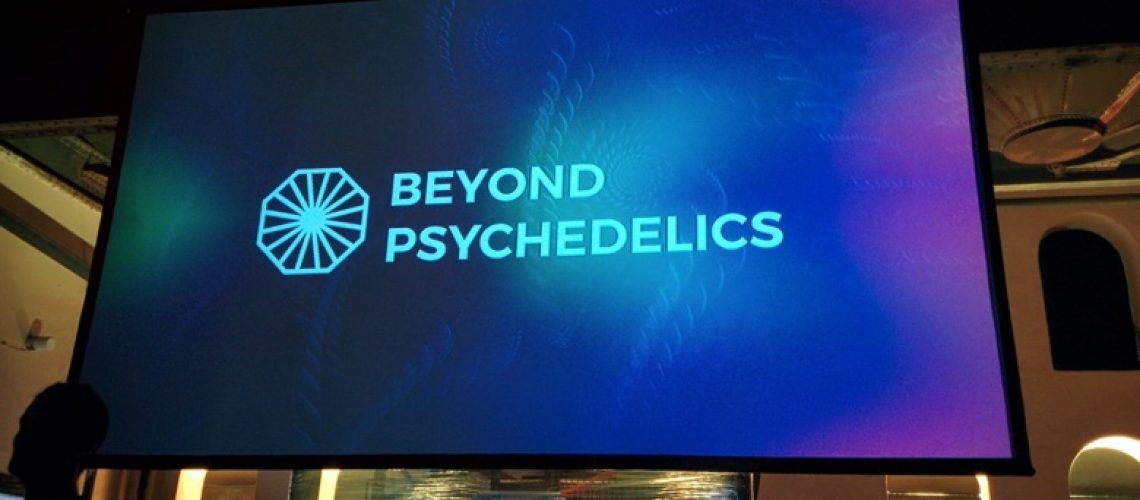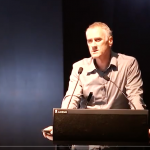PRISM Vice President Dr Stephen Bright reflects on his attendance as a guest speaker at Beyond Psychedelics 2016 in Prague.
I would like to thank the organisers of the Beyond Psychedelics conference in Prague for inviting me to present a paper at the conference on behalf of PRISM and providing 400 Euro to help get me there. More so, I would like to express my deep gratitude to the kind people who assisted in making this possible by contributing to the crowdfunding campaign.
The conference was an amazing opportunity to discuss the barriers that we have faced in initiating psychedelic research in Australia with some of the most distinguished psychedelic researchers from around the world. This has provided PRISM with some additional ideas for moving forward to initiate a psychedelic research project.
Key highlights of the conference
Seeing how progressive the Czech Republic is in not only psychedelic science, but also drug policy. The conference was sponsored by the Czech Ministry for Mental Health and the conference was opened by the Minister. He noted the history of psychedelic research that occurred in his country prior to the international embargo that was placed on this work, and looked forward to the Czech Republic making a significant contribution to the international effort that is increasingly gaining traction. Further, he noted the significant move forward in drug policy that has been made in the Czech Republic by decriminalising the possession of drugs for personal use. He said he looked forward to further progress, including the Czech Republic regulating the manufacture and supply of some drugs in the near future. I couldn’t imagine an Australian Minister for Health sponsoring and opening a conference on psychedelics such as EGA, though perhaps in time Australia might join the rest of the modern Western World in its attitudes towards drugs generally, and psychedelics more specifically.
The Minister’s opening address was followed by a presentation by Rick Doblin on mainstreaming psychedelics. It was inspiring to hear about MAPS’ continuing success in their research with MDMA for treating PTSD, such that they are having an End of Phase II meeting with the FDA in November 2016. Rick Doblin highlighted that the FDA has been very cooperative in relation to their moves toward Phase III trials, even noting that the FDA have suggested that given the significance of the results MAPS has been obtaining, there could be the opportunity for people in the US to access MDMA for PTSD under a clause allowing compassionate access during the Phase III trials. This would significantly increase the number of people who are able to access MDMA-assisted psychotherapy to cure their PTSD. As we now know, this meeting was a tremendous success.
I presented on the opening day on the main stage, within a stream dedicated to harm reduction. It was amazing to hear people from Mexico and other countries talk about their work which is very similar to what Dancewize does in Victoria, with the exception of Chiara Baldini who spoke about Boom Festival where there is access to drug checking. Chiara noted that these music festivals occurring around the world are somewhat analogous to the Eleusis rituals in that they are transformative for many people who attend.
A large component of the conference focused on psychedelic neuroscience, with presentations on experiments showing how harmala alkaloids lead to the development of new neurons and two presentations that looked at how different drugs (e.g., ketamine, cannabis, psilocybin) have both similar and different impacts on brain function studied by two different technologies, EEG & rsfMRI. Of note, these studies were conducted by the Czech Ministry for Mental Health, the rsfMRI study being conducted by Professor Jiří Horáček, who is the Deputy Director. Imagine how Australian Departments of Health would function with scientists rather than bureaucrats in charge!
Dennis McKenna and Roland Griffiths spoke about the positive effects of spiritual experiences that can be occasioned by psychedelics, and how these can translate into environmental awareness and be used therapeutically. This was highlighted in Robin Carhart-Harris’ presentation of the recent open-label trial examining whether psilocybin-assisted therapy could be an effective intervention for people with treatment-refractory depression. Participants’ responses to the treatment appeared to be directly associated with reduced functioning of the Default Mode Network, a broad network of the brain that is associated with the ego. Therefore it would appear that ego-dissolution is an important mechanism of action. He also provided survey results that showed after people used psychedelics they tended to hold more liberal views politically and also be more environmentally conscious.
Finally, it was inspiring to hear the wisdom from Dr Friederike Fischer, who has worked as an underground psychedelic therapist for the past 10 years using LSD, MDMA and 2C-B. While there were many other great presentations (too many to describe in detail), there was a theme of psychedelic societies emerging across the word and the need to establish a global network so that mutual support can be provided.





